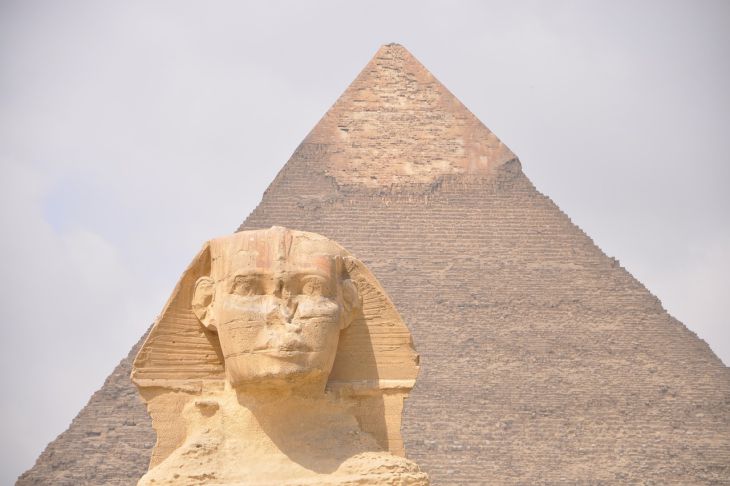The pyramids of Ancient Egypt attract the attention of scientists, travelers and tourists from all over the world.
Let's look at some interesting facts about these grandiose structures.
The oldest and largest pyramid is the Great Pyramid of Giza. It was built around 2560-2540 BC by order of Pharaoh Cheops. Its height was originally 146.5 meters, and its volume was more than 2.5 million cubic meters.

The construction of the Great Pyramid required about 20 years of continuous work and the participation of more than 100,000 people. Scientists are still debating how the ancient Egyptians were able to build such a grandiose structure without modern technology.
All the pyramids of Egypt were faced on the outside with smooth, perfectly fitted limestone blocks. Unfortunately, most of this facing has been lost over time. Today, only the basic, roughly dressed limestone blocks are visible.
The interiors of the pyramids, such as burial chambers and corridors, were lined with smooth, polished limestone. The walls were sometimes decorated with relief images and hieroglyphic inscriptions.
Scientists are still puzzled over how the ancient Egyptians mined and transported huge stone blocks weighing up to 15 tons. They probably used simple but effective tools, and the draft power of people and animals.
In addition to the main burial chamber, there are complex labyrinths of corridors, auxiliary rooms and shafts inside the pyramids. Their exact purpose is not fully understood.
The Great Pyramid of Giza is the only one of the Seven Wonders of the Ancient World that has survived to this day almost unchanged. Its faces are almost perfectly oriented to the cardinal points.
No treasures or artifacts have been found inside the pyramids of Egypt, disproving the popular belief that the pyramids were giant tombs of pharaohs filled with riches.
Modern scientists have discovered that the pyramids of Egypt have the most unusual acoustic properties. Sounds in their interiors behave very strangely, creating the effect of "mystical voices".
Scientists have also found that the pyramids can be considered as huge radio transmitting devices. They are capable of generating and emitting electromagnetic waves of special frequencies.
These unique monuments of the ancient civilization still hold many mysteries and secrets. Revealing their full history and purpose will undoubtedly allow us to better understand the rise and fall of the great Egyptian culture.
